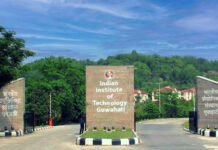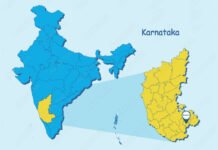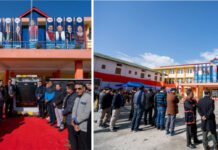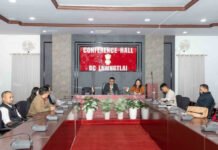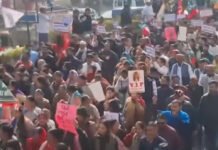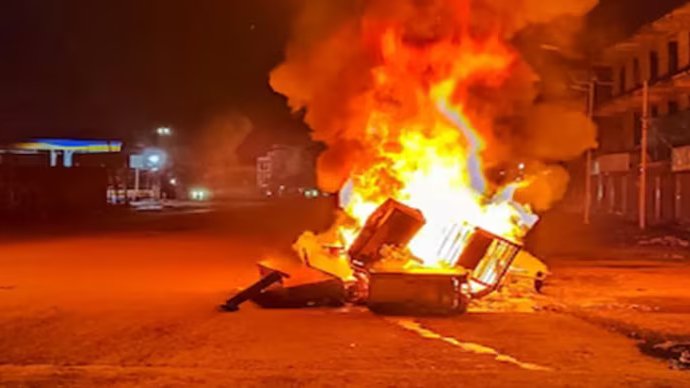Manipur has endured a profound crisis since May 2023, triggered by ethnic tensions between the majority Meitei community in the Imphal Valley and the tribal Kuki-Zo communities of the hill districts. What began as a contentious debate over the extension of Scheduled Tribe status to the Meiteis spiraled into months of violence, massive displacement, and governance failures. From an Indian standpoint, the situation reflects deep challenges in regional administration, communal trust, and the need for national reconciliation.
Governance Crisis and Political Accountability
The initial unrest was ignited when the High Court directed consideration of Scheduled Tribe status for the Meitei community—a move seen by many Kuki-Zo leaders as a threat to their own social, land, and political rights. Clashes broke out almost immediately, escalating rapidly.
By July 2023, the conflict had claimed at least 175 lives, displaced over 60,000 people, and destroyed thousands of homes, churches, and temples. Communities became geographically and psychologically divided. Victims lived in relief camps, mostly in impoverished conditions, while trust between communities collapsed.
Government Reaction: Delayed, Defensive, Divisive?
Chief Minister N. Biren Singh and the state government were widely criticized for slow and selective responses. Opposition leaders accused the government of siding with Meiteis. Critics allege that security forces—CRPF, Assam Rifles—were seen as favoring one community or the other, undermining faith in institutions.
On 31 December 2024, Biren Singh addressed the media and said:
“I want to say sorry for what happened in the state. Many people lost their loved ones and many had to leave their homes. I regret and want to apologise.”
However, his apology received mixed responses—praise from some Meitei groups and rejection by many Kuki organisations as insufficient.
Earlier, on 6 October 2023, he had promised:
“Justice is being given to both communities… markets and offices have also been opened. I expect things to cool down soon.”
By mid-February, amidst growing unrest, he resigned, and the state was put under President’s Rule. Central forces were brought in, but their neutrality continued to be questioned.
Community Voices and Parliamentary Recognition of the Crisis
Many displaced Kukis declined state funeral honors and chose safe alternate routes for repatriation of their dead, citing fear and mistrust of Imphal. Thousands took shelter in neighboring districts and even states.
Parallel to political churn, civil society groups emerged. The Coordinating Committee on Manipur Integrity (COCOMI)—primarily representing Meitei interests—asserted that the unrest was rooted in demands for autonomous or separate administration. Meanwhile, the Indigenous Tribal Leaders’ Forum and other Kuki groups accused the administration of systematic targeting and demanded independent probes.
Union Defence Minister Rajnath Singh appealed to all communities, stating:
“Violence is no solution to any problem. What we need is heart‑to‑heart conversation.”
The Governor pledged concrete steps to resolve the crisis, highlighting temporary shelters, training programmes for displaced youth, and state support for artisans and handloom workers.
Where Governance Struggled, Civil Society Held Ground
Despite high-level assurances, formidable challenges persisted. Hundreds of militia-linked extortion cases were registered post-president’s rule. Sporadic incidents of violence—including beheadings and arson—continued to fuel fear. There were credible allegations of media bias, leading the Editors Guild of India to critique local reportage and demand depoliticized fact-finding.
Security operations were hampered by accusations that the CRPF and Assam Rifles showed partiality. Calls for greater transparency, faster relief, and impartial investigation became increasingly loud.
The Road Ahead: Towards Healing and Stability
1. Inclusive Dialogue
Rebuilding trust will require inclusive forums where Meitei and Kuki leaders engage transparently—not only with each other, but with the Centre. Dialogue should aim to resolve misgivings over land, quotas, identity, and political representation.
2. Community-led Rehabilitation
Relief camps must transition into long-term housing with livelihood programmes. Skill training initiatives underway should be scaled up, addressing trauma, loss, and interrupted education. Local youth and craftsmen need economic reintegration.
3. Neutral Security Oversight
Deployment of central forces must be accompanied by civilian oversight, transparent addressing of allegations of favoritism, and credible accountability mechanisms where law and order failed.
| Date | Event |
|---|---|
| 3 May 2023 | Violence erupts between Meiteis and Kuki-Zo following a court ruling on reservation status |
| 5–June 2023 | Over 170 killed, hundreds injured, thousands displaced; arson, assaults, and religious sites vandalized |
| July 2023 | Video of Kuki women publicly paraded and assaulted sparks national outrage |
| August 2023 | Kuki People’s Alliance withdraws support from ruling government; political division intensifies |
| September 2023 | Editors Guild of India flags media bias amid escalating disinformation |
| Oct 2023 | Chief Minister Biren Singh pledges justice for both communities |
| Feb 2024 | Chief Minister resigns; President’s Rule imposed; central deployment of paramilitary forces underway |
| Jan 2025 | CM issues formal state apology; reactions mixed between communities |
| Today | Political regrouping with factions preparing to form a new government amid reports of continuing tensions |
4. Media Ethics and Information Integrity
Fact-based reporting is essential in conflict zones. The state and media must commit to verifying information, avoiding sensationalism, and resisting the spread of inflammatory narratives.
5. Federal Engagement
Development must be prioritized in hill districts as well as the valley. Infrastructure, healthcare, education, and connectivity all need focus—especially to reinforce the message that governance extends evenly across Manipur.
Conclusion
Manipur’s turmoil reveals deeper fissures—identity politics, competing sovereignty claims, and fragile governance. The political situation is not merely a state’s failure, but a complex conundrum requiring nuanced federal action, healing leadership, and long-term vision.
From India’s perspective, the road to peace lies in combining firm governance with culturally sensitive diplomacy. The state’s future depends on its ability to reconcile divided communities, institutionalize justice, and offer equitable development.
An article like this serves not just as analysis, but as a call: to restore trust, rebuild communities, and reimagine Manipur as a symbol of democratic resilience—not division.




